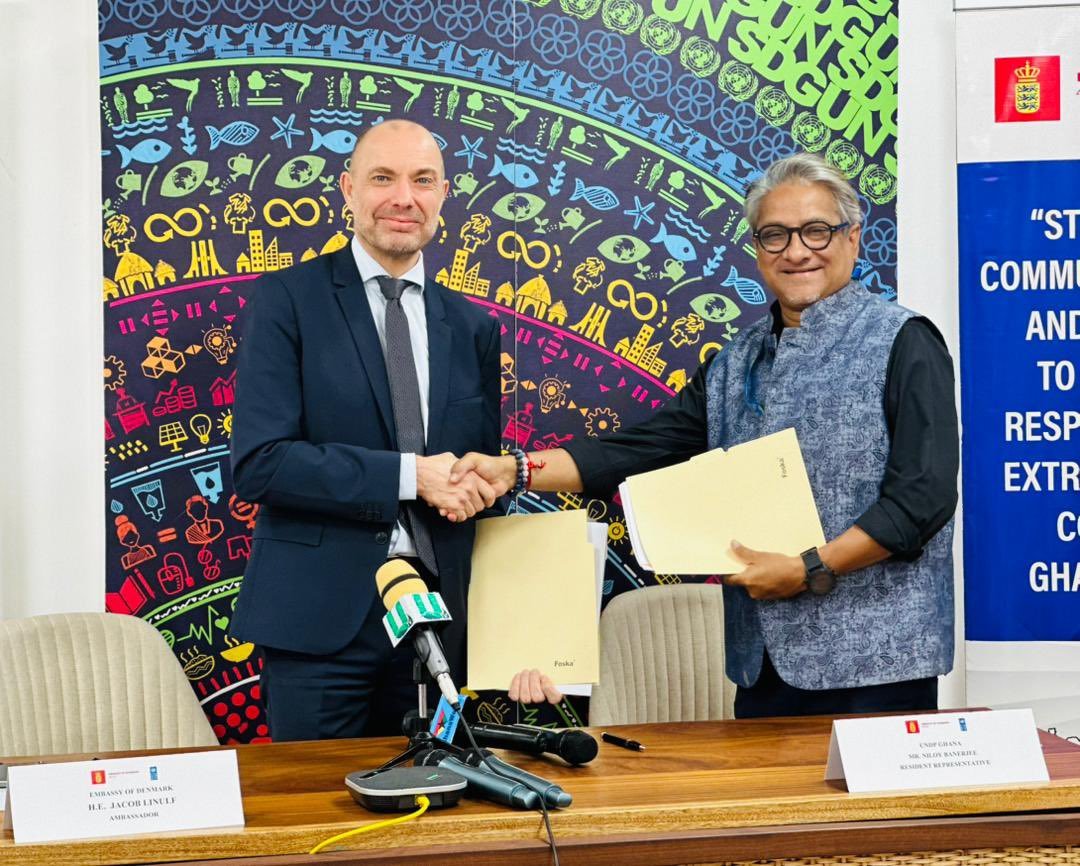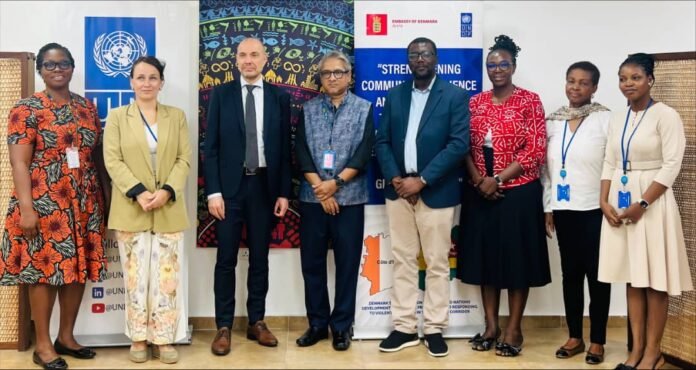The Embassy of Denmark in Accra and the United Nations Development Programme (UNDP) have signed a new agreement to launch Phase II of the Atlantic Corridor Project, under the initiative “Preventing and Responding to Violent Extremism in the Atlantic Corridor.” The project aims to prevent and respond to violent extremism in Benin, Côte d’Ivoire, Ghana, and Togo, with a strong focus on strengthening community resilience and engagement.
By addressing the root causes of violent extremism—such as youth unemployment, inequality, and governance gaps—the initiative seeks to reduce the vulnerability of communities in the border areas of the coastal states to radicalisation leading to violent extremism.

The agreement was signed by Niloy Banerjee, UNDP Resident Representative in Ghana, and Jakob Linulf, Ambassador of Denmark to Ghana. Ambassador Linulf reaffirmed Denmark’s commitment to regional peace and stability, stating:
“Instability and terrorism are common challenges for Africa and Europe.
Denmark’s new partnership with UNDP to prevent the spread of violent extremism in the border areas of the coastal states is an important part of our wider engagement for peace and stabilisation in West Africa.”
Building on the achievements of Phase I (2023–2025), Denmark will contribute DKK 30 million (approximately USD 4.6 million) to support Phase II (2025–2028). This contribution is part of the Danish Peace and Stabilisation Programme for West Africa 2025–2028.
During Phase I, Denmark provided DKK 10 million, which enabled the establishment and operationalisation of 50 community-level conflict early warning and early response mechanisms. As a result, awareness of violent extremism prevention mechanisms among target beneficiaries rose significantly—from 23% to 97%—demonstrating a marked improvement in community preparedness and engagement. The initiative also supported over 1,699 at-risk youth and women through livelihood skills training and facilitated access to economic programmes, helping reduce vulnerabilities to recruitment by violent extremist groups.
A mid-term evaluation conducted by the Ministry of Foreign Affairs of Denmark recognised the project’s impact and potential for scale-up. In response, Phase II has been designed to deepen community engagement, ensure continuity, and enhance coordination with national strategies to prevention violent extremism and regional information-sharing mechanisms.
The project takes a regional approach to addressing the drivers of radicalisation and violent extremism in border communities. It empowers communities by building socio-economic resilience, promoting peace and tolerance, countering extremist narratives, combating hate speech and misinformation, and strengthening both national and local peace infrastructures.
Speaking at the signing ceremony, Niloy Banerjee, UNDP Resident Representative for Ghana, emphasised the importance of partnerships in addressing violent extremism:
“In the face of the threat of violent extremism, we recognise that this partnership—and many others in the pipeline—will help amplify local voices, share knowledge, enhance early warning systems, and build community resilience to counter the influence of violent extremists.”
Through this renewed partnership with UNDP, Denmark reaffirms its commitment to promoting peace, stability, and inclusive development in West Africa’s coastal states.
The project is part of Denmark’s regional programme for Peace and Stabilization in West Africa which emphasises African-led solutions to peace and conflict by mitigating instability through local and regional capacity development.








